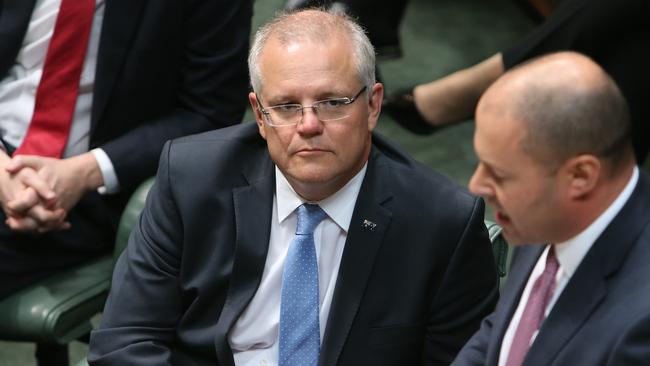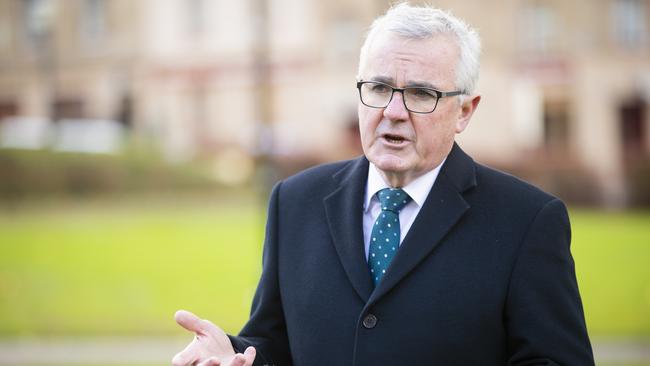Cabinet agrees to probe into press freedom
Cabinet has agreed to establish an inquiry into impact of police and intelligence on press freedom.

Cabinet has agreed to establish an inquiry to examine the powers of police and intelligence agencies and their impact on a free press, following calls from media executives for the government to overhaul laws affecting the work of journalists.
The parliamentary joint committee on intelligence and security will conduct the inquiry, which Scott Morrison hopes will receive Anthony Albanese’s backing when they meet today.
Media bosses will meet Attorney-General Christian Porter today to discuss the reform proposals they released last Wednesday that were sent in writing to the Prime Minister. Media organisations have dismissed the need for an inquiry and want changes to national security, defamation, Freedom of Information and whistleblower laws, plus the right to contest the application for warrants regarding journalists and media organisations.
Revelations that cabinet had signed off on the inquiry came after Labor announced it would push to set up a separate parliamentary committee to inquire into press freedom and whether there was an appropriate balance between the public’s right to know and national security laws. Independent Tasmanian MP Andrew Wilkie backed Labor’s proposal and said the government’s plan for an inquiry was a “snow job”. Crossbenchers such as Mr Wilkie cannot be members of the PJCIS, which can hear evidence in secret.

“The Labor and Liberal-dominated PJCIS is part of the problem because it’s signed off on every unnecessary security reform in recent history,” Mr Wilkie said. “Who could forget the controversial data retention bill of 2015 and just last year the encryption bill? In both cases the PJCIS recommended some tweaks around the edges, but … recommended the bills be passed, despite the serious concerns about both.”
Terms of reference for the PJCIS press freedom inquiry, obtained by The Australian, include scrutiny of the experiences of journalists and media organisations that have, or could become, subject to the powers of police or intelligence agencies performing their functions and the impact they have on journalists’ work.
It will also look at why the media is subjected to some powers and if any changes can be made to procedures and thresholds to balance the need for press freedom with national security threats.
Two issues for specific inquiry include: “Whether and in what circumstances there could be contested hearings in relation to warrants authorising investigative action in relation to journalists and media organisations; (and) the appropriateness of thresholds for law enforcement and intelligence agencies to access electronic data on devices used by … media organisations.”
Mr Morrison has written to the Opposition Leader outlining the scope of the inquiry, which will report by October 17, and is keen to achieve bipartisanship.
Opposition home affairs spokeswoman Kristina Keneally yesterday gave notice to the Senate that tomorrow Labor would move to establish a separate inquiry into the “public’s right to know and press freedom”, which would have a broad membership of Coalition, Labor and crossbench members and senators.
The push to establish the two inquiries comes after federal police raids on the ABC headquarters in Sydney and the home of News Corp reporter Annika Smethurst.
“There is a culture of secrecy and perverting the public’s right to know that has been making its way through this government for too long, ” Senator Keneally said.



To join the conversation, please log in. Don't have an account? Register
Join the conversation, you are commenting as Logout